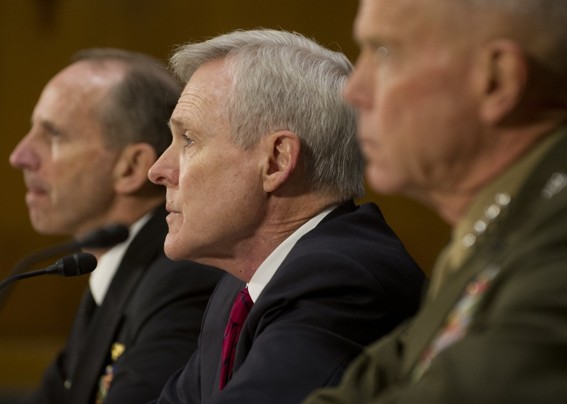As the Petraeus affair now degenerates into near-farce (but with perhaps fatal consequences — with a series of now-notorious debacles in Afghanistan and Libya, it raises questions as to whether our soldiers are being led effectively when their leaders are living through romantic plots fit for Jerry Springer), it highlights the military’s significant infidelity problem. While the “Dear John” letter has long been a staple of deployments, our new coed military now gives as good as it gets while deployed downrange.
In the military — as elsewhere — sexual scandal is simply called “drama,” and “drama” (with its related fights, substance abuse, and sometimes even suicide attempts) can dominate military justice in deployed environments. During my deployment, I was with an all-male combat arms unit on a small, isolated base and thus missed most of the controversy that sometimes consumed entire units. But go to Balad — or one of the other larger bases — and it was everywhere. The larger DFACs (dining facilities) were the deployed equivalent of singles bars, and the omnipresent port-o-pot was a favorite location for clandestine couplings.
At some level this is entirely predictable: Place thousands of young men and women together in close quarters, put them through a shared (and intense) experience, and relationships are inevitable. Military regulations can’t spontaneously generate a deployed legion of coed puritans. Nor is this a new problem: There is a long tradition of “camp followers” that trailed behind armies in the field.
It’s a problem without an easy solution. Historically, many outstanding combat officers have been known philanderers, while marital fidelity does not necessarily translate into martial effectiveness. I tend to think that the military should be far more ruthlessly accountable regarding its primary job: combat effectiveness. Distracted officers (for any reason) tend to be poor leaders, and perhaps a focus on outcomes will do more to deal with the distractions than a myriad of regulations covering all potential human failings.
[Ed. Note: This column originally appeared at National Review Online.]










